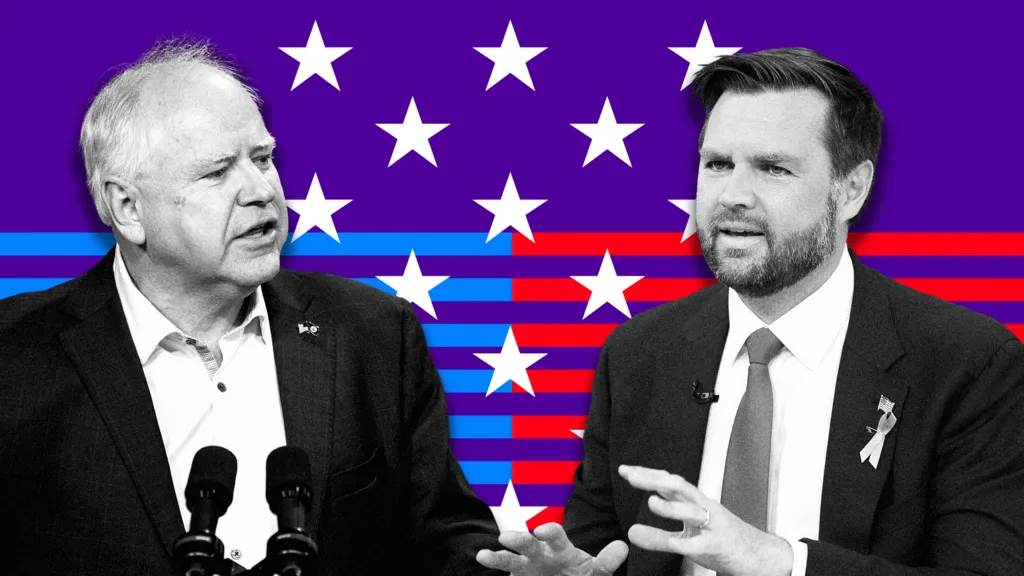In the world of American politics, vice-presidential debates often feel like mere footnotes in the larger narrative of presidential campaigns. However, the upcoming face-off between Democrat Tim Walz and Republican JD Vance might just change that perception. Scheduled for Tuesday night in New York City, this debate is not just another political event; it’s a pivotal moment that could sway the opinions of undecided voters in a razor-thin race.
Historically, vice-presidential debates have served as little more than an undercard to the main event. Yet, with the current election landscape characterized by tight margins, especially in battleground states, every opportunity for political momentum is critical. Walz and Vance represent starkly different political philosophies and strategies, making their debate a fascinating spectacle for voters eager for clarity.
Vance, a 40-year-old senator from Ohio, emerged as a surprising pick for Donald Trump’s running mate, following Trump’s dramatic summer. This selection not only aims to bolster Trump’s appeal among the working-class voters in the industrial Midwest but also to solidify Trump’s legacy as he prepares for a potentially historic return to the White House. Unlike Mike Pence, Trump’s first vice-president, Vance is a true ideological ally, with his views on trade and immigration closely mirroring Trump’s priorities.
In contrast, Tim Walz’s journey to the Democratic ticket is a compelling narrative of resilience and adaptability. Initially not a frontrunner, the governor of Minnesota gained recognition for his charismatic television appearances and his ability to frame liberal policies in a manner palatable to moderate voters. His candidacy represents a strategic pivot for Democrats, seeking to connect with voters who feel alienated by the party’s traditional messaging.
As the candidates prepare for the debate, their campaign styles reveal the contrasts in their political personas. Vance, with his polished demeanor and Ivy League education, embodies the new face of the Trump campaign. He has actively engaged with rural voters, focusing on issues like immigration and the economy, while also addressing controversies that threaten to derail his message.
On the other hand, Walz employs a folksy charm, drawing on his background as a high school teacher and football coach. His appearances in rural areas highlight a Democratic strategy to reclaim support in regions that have shifted towards Republican candidates in recent years. With his straightforward approach and emphasis on community values, Walz seeks to counterbalance the Republican narrative with a message of inclusivity and understanding.
During the debate, we can expect Vance to target the Democratic agenda, emphasizing areas such as crime and immigration where Republicans believe they have the upper hand. He may criticize Walz’s record during his tenure as governor, particularly regarding his response to civil unrest. Meanwhile, Walz will likely pivot to highlighting Vance’s controversial past statements, seeking to frame him as out of touch with everyday Americans.
As these two candidates prepare to introduce themselves to a national audience, the stakes have never been higher. Vance has the opportunity to deepen Trump’s message, while Walz aims to establish his credentials and resonate with independent voters.
With no further presidential debates scheduled, this showdown presents a crucial chance for both candidates to articulate their visions for America. As they square off, voters will be watching closely, and the outcome could very well influence the trajectory of the election as a whole.


